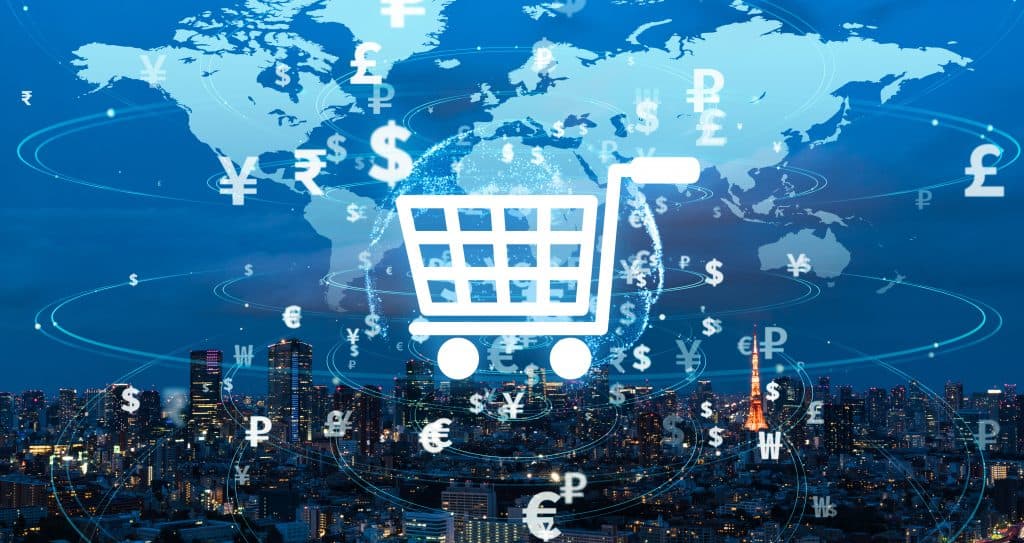
Now that we’re acclimated to the new year, it’s time for our Amazon predictions for 2020.
We’ve gathered insight from some of the best minds in Amazon selling. From marketplace acquisitions and expansion to feature and regulation changes, this is what we think is in store for sellers this year.
Prediction #1 – Deeper into Groceries
After playing around with Whole Foods, Amazon must realize by now that this niche is not big enough for its ambitions. We also think that the growth of Amazon’s branded supermarket chain hasn’t been fast enough to make Jeff Bezos happy.
The only smart move left for the marketplace is to buy up an established chain – most likely a major one.
We’re not talking about Amazon acquiring anything in the Walmart category. Many other large operations exist, however, that would make a great addition to Amazon’s brands. Several of these chains are struggling against the likes of Walmart, which makes them ripe for the picking. Some are resisting Amazon, but may not have a better option.
Whatever Amazon chooses, we believe it will be a chain that has a wide presence across the United States. This makes the most sense considering Amazon’s vast fulfillment network. It also ties in nicely with Amazon’s history of appealing to the masses.
Bezos won’t be stingy, but will definitely get a good deal based on Amazon’s market cap. He will also choose a business that will not need a large infusion of capital. Moreover, whether or not the stores have the same name, it won’t matter because they will likely be rebranded to call out to Prime subscribers.
Prediction #2 – Amazon Africa
Amazon has spread from the Americas to Europe, Asia, and Australia. There’s nothing left but Africa and Antarctica, so we know into which continent the next expansion will be. And it’s not just a process of elimination, either.
Once Amazon ventured into Asia, it was clear that Africa would not be far behind. Consumers from many African countries make purchases online. This mostly happens over the Black Friday sales season, but that’s true of online sales worldwide. Africa has its own online giant, and this is a sign that there is a market for Amazon to tap into. And almost 170 billion US dollars in sales reported for just one retailer is solid proof.
One huge event that signals open season on the African continent is their version of the North Atlantic Free Trade Agreement (NAFTA). Called the Africa Continental Free Trade Area (AfCFTA), it opened up free trade among the 54 nations. As it encourages trade, it will foster job growth and overall GDP as well – all good for commerce.
Amazon likes to compete, but it won’t want to take only a share of what Africa’s home-grown players rake in.
Acquiring one of the top online retailers is the bolder and more profitable move. Like Amazon acquired Souq in 2017 and turned it into Amazon.ae, we believe that Nigeria’s Jumia will become Amazon.ng – or similar.
Jumia has experienced huge losses and is currently valued at a third of its IPO valuation in 2019, so it’s the likely target.
Prediction #3 – Singles Day
China’s online giant Alibaba raked in $38 billion in sales during their Singles Day sales.
This is nothing compared to what Amazon boasts on Black Friday / Cyber Monday (BFCM). It’s not a bad take, however, for a single day that was invented as a counterpoint to Valentine’s Day. Taking into account that BFCM stretches over 4 days – and sometimes longer – it’s bigger than the take on any single day. And it’s five times bigger than Prime Day.
As other countries see these numbers and add Singles Day to their online marketing strategies, Amazon should not be far behind.
It’s too big of an opportunity to pass up. Moreover, in countries where both Amazon and Singles Day exist, Singles Day wins out. We believe it’s because it falls on November 11th, which is a great chance for people to beat the holiday rush. It falls on Veteran’s Day, however, which is not an ideal time for a shopping spree.
Again, Amazon loves to compete, and since Alibaba is looming large – largely due to Singles Day – Amazon will probably not be able to resist the chance to gain some ground.
Features and Regulations
It’s is foreseeable that Amazon will be introducing more tweaks to the tools is offered to sellers and the regulations that sellers must comply with to remain on the marketplace. These are our Amazon predictions for these changes:
Prediction #4 – Goodbye Messaging
It seems strange to think that Amazon will dump its Buyer-Seller Messaging service after giving it a facelift. But shutting down the system gives Amazon more control over customer satisfaction. Without it, customers will have to contact Amazon with their complaints rather than sellers. Sellers will also have no choice but to route communications through Amazon.
This can be both a good and a bad thing, depending on how you look at it.
Third-party sellers on the marketplace have found it increasingly difficult to use the tool.
Changes to the system have made it more and more difficult for sellers to communicate with customers. This is especially true for FBA sellers.

It all started with the opt-out feature that allows customers to block seller messages.
At times, this increases complaints, such as when customers don’t get shipping notifications or block product information emails.
Then, Amazon kept adding to the list of things that sellers are not allowed to say – a self-serving measure to keep shoppers on Amazon. They also limited the number of times sellers could ask for reviews and feedback and introduced the Request a Review button on the Seller Central Orders page.
Without the advantages of direct communication with shoppers, it may actually be better to let Amazon take responsibility for all complaints and requests.
Prediction #5 – Limited FBM
Amazon must be getting tired of chasing down counterfeiters, dealing with complaints, and doing damage control, only to see them pop back up again.
This is a major reason why our Amazon predictions for 2020 include restricted FBM categories.
Without the ability to fulfill items themselves, sellers will not be able to fool Amazon or its customers as easily. Although this will entail more work on Amazon’s end – checking shipments to their warehouses – it’s a smart investment in protecting their reputation and reducing customer complaints. Sellers will also have less control over their branding and messaging with FBA.
This will prevent sellers from crafting misleading wording that inevitably results in customer complaints.
Amazon of course has guidelines for FBM sellers to follow on packaging, delivery and customer service. They face no marketplace penalties, however, when they do not comply. They can only get poor feedback ratings, which many customers don’t click through to read anyway.
The problem with forcing FBA is that there are items that are very difficult to ship.
Many sellers would probably find alternative channels if they could not do FBM. Some sellers also do very well on FBM, and should not be pushed away. The logical choice for Amazon would be to restrict FBM by removing certain categories that can just as easily be FBA. Stricter monitoring and penalties are also a possibility.
Prediction #6 – Stricter Reviews
In order to gain more control, Amazon will continue its battle against fake reviews.
Amazon prohibited incentivized reviews in October of 2016 and has not let up since. The latest move was the December 2019 update to its terms of service, banning sellers from posting reviews of their own products or their competitors’ products and from offering refunds after customers post reviews.
Related article: How to Respond to Negative Reviews on Amazon
Here’s what we predict Amazon will do in line with trying to stop fake reviews from getting through its nets:
Amazon will probably make a stronger push for brand registration and gating to control seller listing.
They are also likely to develop an algorithm that can better track reviews and signal when a seller seems to be getting way more reviews than the average within a certain timeframe.
Finally, we think Amazon will start flagging sellers who have been blacklisted by manufacturers and banks.
Final Thoughts
It seems certain that the marketplace will cover the globe this year, absorbing businesses with an established online presence. And we’re pretty sure that Amazon will seek greater revenues through an additional big sale day and seek higher customer satisfaction ratings through additional restrictions on messaging and fulfillment.
If you’re new to the platform, we hope that these predictions may help you decide whether to start your Amazon business and become financially independent in 2020.



